|
Somerset Beekeepers’ Association and Exmoor National Park Authority are today (September 4) calling on the public to be on the lookout for yellow-legged Asian hornets which pose a serious threat to honeybees and other pollinators.
Beekeepers, supported by Exmoor National Park staff, have been investigating an as yet unconfirmed sighting of the highly invasive Vespa velutina nigrithorax in the Minehead area. Asian Hornet Week runs from September 9 to 15 throughout the UK and coincides with a good opportunity to prevent the destructive insects getting a foothold. Anne Pike, chairman of SBKA, said: “Vigilance is a cornerstone of our defence strategy and we want to mobilise the county to be on the lookout throughout September and October to protect the environment we treasure so much.” Somerset Beekeepers have set up 12 Asian hornet action teams, which cover the county, to follow-up reported sightings and educate the public. Ali Hawkins, Exmoor National Park Wildlife Conservation Officer, said: “There is a real risk to our own native honeybee and European hornet if these alien species are allowed to take hold. Given the many pressures on our precious pollinators, including climate change, habitat destruction and pesticide use, it’s vital we do all we can to support them by reporting sightings. A good quality photo gives the best chance of tracking down the nest to prevent further invasions and Autumn represents the most likely time to see them on the wing.” People in both rural and urban environments are urged to check plants which are in flower and attracting insects in the coming weeks, such as ivy. Anne Pike added: “The difficulty of protecting the UK from Asian hornets is underlined by Jersey’s experience. The first Asian hornet was spotted on the island in 2016 and, in spite of the efforts of local beekeepers and volunteers, this year they have caught 69 queens, discovered 54 nests and are still looking for more.” The Asian hornet has a distinctive orange face and yellow tipped legs and is smaller than the bright yellow striped European hornet. Asian hornets are a notifiable invasive species and should be reported immediately, preferably with a photo using:
ends Anne Pike, Chairman of Somerset Beekeepers’ Association, tel: 07971 275840; email: chairman@somersetbeekeepers.org.uk Ailsa Stevens, Communications Officer, Exmoor National Park Authority, tel: 01398 322244, mob: 07772 092128, email: astevens@exmoor-nationalpark.gov.uk Pic cap: An Asian hornet foraging on ivy in Brittany. Photo credit: Stewart Gould, Somerset Beekeepers’ Association Notes to editors: Somerset Beekeepers’ Association is a Registered Charity run by volunteers and works to advance the craft of apiculture within its membership and to promote general awareness and understanding of honeybees. Asian hornets (Vespa velutina nigrithorax) are slightly smaller than native European hornets and look like large black wasps with orange face and yellow legs:
A single Asian hornet can kill 50 bees a day, with a nest containing up to 6,000 workers and up to 350 queens. In Jersey, France and large areas of Western Europe they are stripping the environment bare of insects before moving on to prey on managed honeybee colonies. Asian hornets are a notifiable invasive species and should be reported immediately with photo using:
About Exmoor National Park Authority - www.exmoor-nationalpark.gov.uk First designated in 1954, Exmoor National Park has an amazing variety of landscapes within its 267 square miles – stunning coast, moorland, woodland, valleys and farmland and more than 800 miles of rights of way to enjoy. It is one of 15 National Parks in the United Kingdom and in 2011 was designated Europe’s first International Dark Sky Reserve. Exmoor National Park Authority works in partnership with the community, local councils, businesses and other organisations to look after the National Park and promote its conservation and enjoyment. Donations to CareMoor for Exmoor are gratefully received towards the upkeep of the National Park and its special qualities. Follow us on Facebook, Twitter, and Instagram. The County Honey Show held at Taunton Flower Show attracted a record number of entries and hosted the Asian hornet roadshow for the first time.
Beekeepers from as far afield as Cornwall competed in classes for the best honeys, wax and other products from or inspired by beekeeping. Somerset Beekeepers’ Association Chairman Anne Pike said it was a standout show: “Entries were the highest they’ve been for years and visitors to the Bees and Honey feature were treated with the sight of many hundreds of jars of honey, honeycombs straight from the hive and beautiful artwork. “It is wonderful to see more people get involved in these competitions which showcase the beauty of local honey and wax and their skills as beekeepers.” The Blue Ribbon for the best exhibit in the show went to John Roberts from Falmouth for a magnificent cake of beeswax. Local trophy winners included Jenny and Sid Gammon from Taunton; Maggie North, Buckland St Mary; David Pearce, Bathealton near Wiveliscombe; Mary Adams, Bishops Lydeard; Alan Nelson, Bilbrook; and Rob Fox, Minehead. Thousands of visitors to the two-day show held at Vivary Park pledged to look out for Asian hornets to protect honeybees and other pollinators. Beekeepers explained how to identify the hornets, which are sweeping across parts of Europe, including the Channel Islands, and causing the loss of many millions of bees and insects. Master Beekeeper Lynne Ingram, who leads the county’s Asian Hornet Action Team, said: “The greatest resource we have in fighting the Asian (yellow legged) hornet are members of the public. We hope the banners, leaflets and pinned specimens will help visitors to be aware of an insect which could wreak havoc on our environment if it gets a foothold in this country.” Results – Taunton Awards: The Taunton Perpetual Challenge Trophy: SJ & JA Gammon The Priscott Perpetual Skep: M. North The Stoker Perpetual Silver Trophy: SJ & JA Gammon The Pat Barter Silver Trophy: J. Roberts The W .Elmsall Perpetual Observation Hive Trophy: Taunton and District Beekeepers The Andy Coles Memorial Trophy for Mead: M. Adams The Tom Tucker Trophy for Cookery: R. Fox The Downes Perpetual Cup: R.Fox The Gammon Perpetual Trophy: B. Muckett The Taunton Honey Show plate: D. Pearce The Taunton Honey Show Perpetual Trophy: D. Pearce The Sally Bennett Trophy: M. North The John Spiller Mascot: D. Pearce County Cups: Jubilee Cup: J. Roberts Miss M.D Bindley Cup: A. Nelson Terry Arnold Perpetual Challenge Trophy: R. Fox The Duffin Challenge Trophy: J. Roberts The Clifford Langford Award for Mead: M. Adams The Blue Ribbon for the best exhibit in Show in the judges’ opinion: J. Roberts To find out more visit Somerset Beekeepers’ website: www.somersetbeekeepers.org.uk Ends Photo caps: John Roberts from Falmouth won the Blue Ribbon for the best exhibit in the show; Jenny Gammon from Taunton was awarded two trophies. For further information contact: Anne Pike, Chairman of Somerset Beekeepers’ Association, tel: 07971 275840; Lynne Ingram, Co-ordinator of Somerset’s Asian Hornet Action Team, tel: 07846 165877 Notes to editors: Somerset Beekeepers’ Association is a Registered Charity run by volunteers and works to advance the craft of apiculture within its membership and to promote general awareness and understanding of honeybees. The County Honey Show is open to all full members of SBKA and county associations in the UK. Asian hornets (Vespa velutina nigrithorax) are slightly smaller than native European hornets and look like large black wasps with orange face and yellow legs:
A single Asian hornet can kill 50 bees a day, with a nest containing up to 6,000 workers and up to 350 queens. In Jersey, France and large areas of Western Europe they are stripping the environment bare of insects before moving on to prey on managed honeybee colonies. Asian hornets are a notifiable invasive species and should be reported immediately with photo using: Asian Hornet Watch app asianhornet@somersetbeekeepers.org.uk alertnonnative@ceh.ac.uk Somerset Beekeepers’ Association is calling on visitors to the Royal Bath & West Show, which starts tomorrow (May 30) at Shepton Mallet, to be on the alert for a major threat to the UK’s pollinators.
For the first time they are running an interactive exhibit about the Asian hornet (Vespa velutina nigrithorax) in the Show’s popular Bees & Honey Feature. Association chairman Anne Pike said: “We want gardeners, farmers, walkers and all countryside-lovers, as well as beekeepers, to be on high alert for the imminent arrival of Asian hornets. “These hornets look like black wasps with yellow tipped legs and are as devastating to pollinators as foot and mouth disease was to livestock. “In France, where Asian hornets arrived in 2004, honey production is down by 50 per cent reflecting the impact these non-native and highly invasive insects are having on honeybee numbers.” Members of the newly-formed Asian Hornet Action Team will be on hand to talk to visitors about the hornet and explain how to correctly identify them. In addition to large information banners, there will be glass cases displaying Asian hornets next to European hornets and honeybees, identification leaflets to take away and children’s colouring-in sheets. Master Beekeeper Lynne Ingram, who heads up the Action Team, added “The greatest resource we have in fighting the Asian (yellow legged) hornet are members of the public. They are our eyes. Come into the tent and find out what an Asian hornet looks like. This time of year, look out for tiny embryo nests in sheds or garages. If you wait you will see the queen returning to feed her larvae. In June the workers will emerge and you may find them drinking nectar on flowers. If you see one, take a photo and report it on the Asian Hornet Watch app or contact asianhornet@somersetbeekeepers.org for further advice.” In addition, Somerset Beekeepers will be demonstrating the invaluable role honeybees play in the pollination of the nation’s best-loved food crops including apples and strawberries. Somerset members, together with beekeepers from Avon and Wiltshire, will be taking part in a highly competitive honey show, will run candle rolling for children, offer free honey tasting and advice about all aspects of beekeeping. In addition, visitors will have plenty of opportunities to see honeybees at work in observation hives, where bees are behind glass, and in the outdoor bee garden where beekeepers will demonstrate behind protective netting. To find out more visit Somerset Beekeepers’ website: https://www.somersetbeekeepers.org.uk/ Ends For further information contact: Anne Pike, Chairman of Somerset Beekeepers’ Association, tel: 07971 275840; Lynne Ingram, Co-ordinator of Somerset’s Asian Hornet Action Team, tel: 07846 165877 Notes to editors: Somerset Beekeepers’ Association is a Registered Charity run by volunteers and works to advance the craft of apiculture within its membership and to promote general awareness and understanding of honeybees. Asian hornets (Vespa velutina nigrithorax) are slightly smaller than native European hornets and look like large black wasps with orange face and yellow legs:
A single Asian hornet can kill 50 bees a day, with a nest containing up to 6,000 workers and up to 350 queens. In Jersey, France and large areas of Western Europe they are stripping the environment bare of insects before moving on to prey on managed honeybee colonies. Asian hornets are a notifiable invasive species and should be reported immediately with photo using: Asian Hornet Watch app asianhornet@somersetbeekeepers.org.uk alertnonnative@ceh.ac.uk One of the most active Asian hornet tracking beekeepers in Jersey is warning the South West to be vigilant if it is to avoid being overrun by the highly destructive insect.
Bob Hogge, a former President of the Jersey Beekeepers’ Association, will be sharing his experience with Taunton Beekeepers on Thursday, March 28. “You can’t avoid them coming,” he said. “The area of this country is too great to be able to spot every single nest and destroy it. But what you can do is get everyone aware of what this hornet looks like and report it, ideally with a photo when they find it.” Asian hornets look like large black wasps with yellow legs and an orange face. Any sightings should be reported immediately to the Non-Native Species Secretariat (NNSS): alertnonnative@ceh.ac.uk Somerset Beekeepers’ Association has set up an Asian hornet action team to help the public and beekeepers respond to sightings and to support the National Bee Unit to find nests. Team members include beekeepers that spent part of last summer in Jersey with Bob tracking hornets. “I was very impressed with everyone who came over. They saved our bacon, they really did. We were starting to be overrun and the day before they arrived three reports came in of hornets and then UK beekeepers arrived and joined us.” Lynne Ingram, Somerset Asian Hornet Action Team Coordinator, added: “I was really fortunate to be able to go to Jersey to help with the fight against Asian Hornets last summer, and learnt a huge amount. Now we have to be prepared ourselves, and have set up our own team of hornet hunters in Somerset. Team members will help members of the public with the identification and reporting of Asian hornets, and with raising public awareness.” “Asian hornets are a major threat to biodiversity, honey industry and food production of Britain, as they prey on bees and other insects. A nest can house up to 6,000 hornets and 350 queens – each capable of establishing its own colony – and a single insect can kill 50 pollinators in one day.” Jersey was the first British island to be populated by the Asian hornet: the first non-native insect was spotted in 2016 and last year more than 50 nests were destroyed. Last month an over-wintering queen, which can found a huge nest, was spotted and there are fears that more nests will be discovered this year. Last year two Asian hornet nests were destroyed in Fowey, Cornwall, and a further two in Hampshire. To find out more about Asian hornets visit Somerset Beekeepers’ website: https://www.somersetbeekeepers.org.uk/ Ends Photo: Bob Hogge with Asian hornet nests discovered on Jersey. Notes to editors: Somerset Beekeepers’ Association is a Registered Charity run by volunteers and works to advance the craft of apiculture within its membership and to promote general awareness and understanding of honeybees. https://www.somersetbeekeepers.org.uk/ Photos of Asian hornets (and beekeeping) are available to download from: https://www.somersetbeekeepers.org.uk/image-gallery.html
Beekeepers from all over the South West will be converging on a village hall near Taunton on Sunday, March 24 for an auction of beekeeping equipment.
The popular sale, run by Taunton Beekeepers at Ruishton Village Hall, is expected to be packed with second-hand equipment in good time for the coming season. Bidders will be looking for bargains among a miscellany of second hand hives, smokers and honey extraction equipment. Chris Harries, President of Taunton Beekeepers, will be wielding the gavel for the 35th year running and urged beekeepers to make sure they were well prepared for the coming season. “Bees don’t wait for anybody!” said Chris who has hundreds of hives. “This is the last opportunity in the season to get ahead of the bees and beekeepers should have their equipment ready to go if they’re going to be able to cope once the bees ‘wake up’.” Beekeeping involves a considerable amount of equipment: each honeybee colony requires a complete hive which is made up of a roof, crown board, up to three or more (honey) super boxes, a queen excluder (so the queen doesn’t lay eggs in the honey), a brood box and floor. In addition a beekeeper needs protective clothing, hive tools, a smoker, a feeder to provide bees with sugar syrup if needed in the winter, a good reference book, honey extraction equipment and among many other items of paraphernalia. Chris, who runs Sedgemoor Honey, added: “We always get a good selection of equipment and someone just taking up the craft could quite easily get started and save money. A new national hive costs around £300 but most years there are some quite reasonable second-hand ones which fetch £100 or less. Bidders need to remember to thoroughly clean any equipment to prevent the spread of diseases.” Items for the auction will be received at the village hall from 10am to 1.30pm and the sale gets underway at 2pm. Proceeds from the auction will support Taunton Beekeepers’ packed programme of educational courses and lectures held at its teaching apiary near Bradford-on-Tone, Taunton. ends Somerset Beekeepers’ Association (SBKA) is giving all its 900 members Asian hornet monitoring traps in readiness for the arrival of the non-native insects which threaten honeybees and other pollinators. Distribution started at SBKA’s annual lecture day on Saturday (February 16) with members picking up traps to set up in their gardens. Beekeepers are advised to monitor daily and release native insects. Anne Pike, chairman of SBKA, said: “We consider the arrival of Asian hornets to be so serious that we are spending thousands of pounds to make beekeepers and the public aware of these highly destructive and potentially devastating hornets. “We are one of just a few county associations to provide monitoring traps for our membership. Vigilance is a cornerstone of our defence strategy and we want to mobilise the county to be on guard.” Concerns about the potential for Asian hornets to appear in Somerset come after two nests were found and destroyed last year in Fowey, Cornwall, and two in Hampshire. An over-wintering queen, that can found a huge nest of hornets, was spotted in Jersey this month. In parts of France, Spain and Portugal, Asian hornets have stripped the environment bare of honeybees and insects. “If they get a hold here, they could be as devastating to pollinators as foot and mouth disease was to livestock,” added Anne Pike. SBKA has set up an Asian hornet action team to respond to sightings and support the National Bee Unit to find nests. The co-ordinator is Master Beekeeper Lynne Ingram: “As Spring approaches we need to start monitoring for the presence of Asian hornets, as mated queens will be on the wing from now onwards. “We don’t know if there are any Asian hornet queens overwintering in the UK this year, or whether any mated queens will make their way into the UK post-hibernation, but we need to be prepared. “When the queens start to come out of hibernation they search for nectar rich flowers in order to build up their energy. In France and Jersey they are often seen on early single Camellia flowers, so if you have any, it is worth keeping an eye out.” The difficulty of destroying Asian hornets has been highlighted by Jersey’s experience. The first Asian hornet was spotted on the island in 2016 and despite the efforts of local beekeepers and volunteers from the South West, last summer there were more than 50 nests. SBKA’s efforts to save honeybees and other pollinators are being supported by organic dairy Yeo Valley which donated £3,600 to the campaign and has pledged to raise awareness among their customers and staff. The association has printed thousands of fliers and identification cards to help beekeepers and the public to recognise the insect. Asian hornets look like large black wasps with an orange head. Any sightings should be reported immediately, preferably with a photo, to the Non-Native Species Secretariat (NNSS): alertnonnative@ceh.ac.uk To find out more about Asian hornets visit Somerset Beekeepers’ website: https://www.somersetbeekeepers.org.uk/ Ends For further information contact: Notes to editors: SBKA: Somerset Beekeepers’ Association is a Registered Charity run by volunteers and works to advance the craft of apiculture within its membership and to promote general awareness and understanding of honeybees. https://www.somersetbeekeepers.org.uk/ Asian hornets: Asian hornets (vespa velutina) are slightly smaller than native European hornets and look like large black wasps with orange head and yellow legs. A single Asian hornet can kill 50 bees a day, with a nest containing up to 6,000 workers and up to 350 queens. In Jersey, France and large areas of Western Europe they are stripping the environment bare of insects before moving on to prey on managed honeybee colonies. Somerset Beekeepers’ Association and Yeo Valley are working together to help save pollinators from the threat of highly destructive Asian hornets.
The organic dairy company based in Blagdon has donated more than £3,500 to local beekeepers which will fund county-wide Asian hornet action teams. The money was raised by visitors to the company’s gardens where hundreds of crocheted bees were displayed among the flowers.The crocheted bees were made by a group of “yarn-bombers” in the village. Anne Pike, Chairman of Somerset Beekeepers’ Association (SBKA), thanked Yeo Valley for their support. “One of our roles as a charity is to help protect honeybees and we will be directing these most welcome funds to safeguarding bees and all pollinators against the threat of Asian hornets,” she said. Asian hornets are a non-native species which is colonising parts of Europe and is responsible for the loss of hundreds of millions of honeybees. Although Asian hornets in the UK have only been recorded on a few occasions, it is feared numbers will inevitably increase. In the spring, SBKA will monitor for Asian hornets which may have overwintered or been brought into the country from parts of Europe where they thrive. Sightings are reported to the Non-Native Species Secretariat which deploys bee inspectors to find and destroy nests. Sarah Mead from Yeo Valley said: “It is so important to raise awareness of the imminent danger to our bees and pollinators from the Asian Hornet. Until I met Anne Pike from Somerset Beekeepers Association I had no idea how serious the situation could become. None of this fundraising would have happened without the fabulous ‘Blagsaey’ yarn-bombers whose swarm of crocheted bees appeared at Yeo Valley Organic garden as if by magic. "I would like to thank all our visitors who raised an incredible £3,692 for their generosity.” Anne Pike added: “In the coming months we will be working with Yeo Valley to raise awareness of Asian hornets with their customers and staff. One in three mouthfuls of the food we eat is pollinated by bees and other insects and by coming together like this we will all be helping the county’s bees to continue their invaluable activities.” To find out more about Asian hornets visit Somerset Beekeepers’ website: https://www.somersetbeekeepers.org.uk/ Ends Notes to editors: SBKA: Somerset Beekeepers’ Association is made up of 12 divisions and works to advance the craft of apiculture within its membership and to promote general awareness and understanding of honeybees. https://www.somersetbeekeepers.org.uk/ Asian hornets: Asian hornets (vespa velutina) are slightly smaller than native European hornets and look like large black wasps with an orange head. A single Asian hornet can kill 50 bees a day, with a nest containing up to 6,000 workers and 200 queens. In Jersey, France and large areas of Western Europe they are stripping the environment bare of insects before moving on to prey on managed honeybee colonies. This year has been a much a better year for honey bees, according to Somerset Beekeepers’ Association.
Most of the county’s 850 beekeeper-members had a good harvest and are going into the winter with more colonies of honeybees. Anne Pike, Chairman of SBKA, said: “Generally, this season has been a good year for Somerset beekeepers with honey harvests recovering and the creation of more honeybee colonies going into the winter. “The average harvest is a very healthy 35-40 lb per colony while a very few beekeepers had a truly fabulous season with between 150 and 200 lb per colony. “However, it was a rather hit or miss affair as the size of the harvest depends not only on good temperatures and fine weather, but also on lots of nectar producing plants. Some plants were adversely affected by the hard winter and heatwave summer while others including oilseed rape, field beans, blackberries and tree blossom thrived. “Beekeepers appreciate the help of local gardeners in planting bee-friendly blooms – apparently spring-germinated borage tops the polls as the bees’ favourite flower – and farmers who have created wildlife friendly field margins and traditional hedges. “This week the bees should be continuing to forage on autumn flowering plants like ivy and this is a key time to look out for their hugely destructive predator the Asian hornets. These hornets, dubbed large black wasps, prey on foraging honeybees and, where they get established, decimate the insect population. “The Asian hornet has a distinctive orange face and yellow tipped legs. Any sightings should be reported immediately, preferably with a photo, to the Non-Native Species Secretariat (NNSS)." http://www.nonnativespecies.org Local honey supplied by SBKA members is available in many independent shops and at local markets. Ends People in Somerset are urged to join the fight to save honeybees and other pollinators and take part in the UK's first Asian hornet week on September 10-16.
Somerset Beekeepers’ Association Chairman Anne Pike said: “We need beekeepers, gardeners, walkers and everyone in Somerset to be on the lookout for this highly destructive insect. “Asian hornets are wreaking havoc in France and the Channel Islands and we fear that if they get a foot-hold in the UK, our honeybees and many other insects will be decimated here, too. This week is timed to coincide with the last chance this year to prevent the emergence of new Asian hornet queens.” Lynne Ingram, a Master Beekeeper from East Huntspill, has spent the last 10 days tracking Asian hornets in Jersey where, in the space of less than two years, they have spread across the island. “In Jersey it is proving very challenging to find all the nests as they are very well camouflaged. Thirty four nests have been found so far this year, but there is a constant stream of new sightings every day. The team are working flat out, but the sheer number of sightings is overwhelming, even with the assistance of UK beekeepers and a team from Exeter University. Whilst it had been believed that hornets nested high in trees, they have also been found in hedges and at ground level in a bramble patch. These low level nests are more of a public safety issue, especially as people tidy their gardens and cut their hedges at this time of year. “It is crucial that we are all vigilant – and that any nests are found. One missed nest means lots more next year. Many people enjoy working in their gardens, so are ideally placed to spot them. Asian hornets often collect nectar from ivy and autumn flowering camellias, where they will also hawk for bees and wasps, catching them in mid air. Asian hornets are easy to spot – they are large and appear mainly black in the air. When they land, the distinctive single orange stripe across the abdomen is very obvious. They are docile when on a flower – it is only when a nest is disturbed that they become aggressive. If you see one take a photo or vide, and report to the Non Native Species Secretariat.” The Asian hornet has a distinctive orange face and yellow tipped legs. Any sightings should be reported immediately, with a photo or video, to the Non-Native Species Secretariat (NNSS) alertnonnative@ceh.ac.uk Ends Notes to editors: PHOTO CALL: YOU ARE INVITED TO VISIT ONE OF THE UK’S SENTINEL APIARIES WHICH MONITORS FOR ASIAN HORNETS FOR THE LAUNCH OF ASIAN HORNET WEEK (Sept 10-16). WHEN: MONDAY, SEPTEMBER 10 AT 11AM WHERE: TAUNTON BEEKEEPERS’ APIARY IS LOCATED AT HEATHERTON PARK NR BRADFORD ON TONE, TAUNTON TA4 1EU (LOCATED ON THE A38 BETWEEN TAUNTON AND WELLINGTON OPPOSITE THE WORLD’S END PUB) Somerset Beekeepers’ Association is made up of 12 divisions and works to advance the craft of apiculture within its membership and to promote general awareness and understanding of honeybees
Master beekeeper Lynne Ingram from Somerset is working with scientists from Exeter University and Jersey beekeepers this week in the fight against deadly Asian hornets which are wreaking havoc on honeybees in the Channel Isles.
Lynne, from East Huntspill, is part of a team using ground-breaking radio telemetry to track the deadly and invasive Asian hornets back to their nests where they can be destroyed. “This trip is an opportunity to observe Asian hornets at first hand so when they are found here I can provide support to local beekeepers,” said Lynne. “Asian hornets are a massive threat to our honeybees and other pollinators and if they get established here could have a massive impact on our insect population.” The first Asian hornet was spotted in Jersey two years ago and they have spread so rapidly that last week alone they destroyed seven honeybee colonies. In France the first Asian hornet was spotted in 2004 and so far this year thousands of nests have been removed. “Asian hornets would cause irreparable damage to our environment by decimating pollinators which are responsible for one in three mouthfuls of the food we eat.” The UK’s first Asian hornet week will be held on September 10-16 and is timed to coincide with the last chance to prevent the emergence of new Asian hornet queens. The public is urged to join beekeepers to look for the non-native and highly invasive insect and report any sightings, preferably with a photo, to alertnonnative@ceh.ac.uk Asian hornets are slightly smaller than native European hornets, have a distinctive black/dark brown thorax; brown abdominal segments with the fourth segment almost entirely yellow-orange, brown legs with yellow ends, a black head and an orange-yellow face. Ends Note to editors: Somerset Beekeepers’ Association is made up of 12 divisions and works to advance the craft of apiculture within its membership and to promote general awareness and understanding of honeybees. |
Archives
September 2023
Categories
All
|
Somerset Beekeepers Association Charity © 2021 Registered CIO Charity 1206483
Affiliated to the British Beekeepers Association
Click here to view our Privacy Policy
Affiliated to the British Beekeepers Association
Click here to view our Privacy Policy
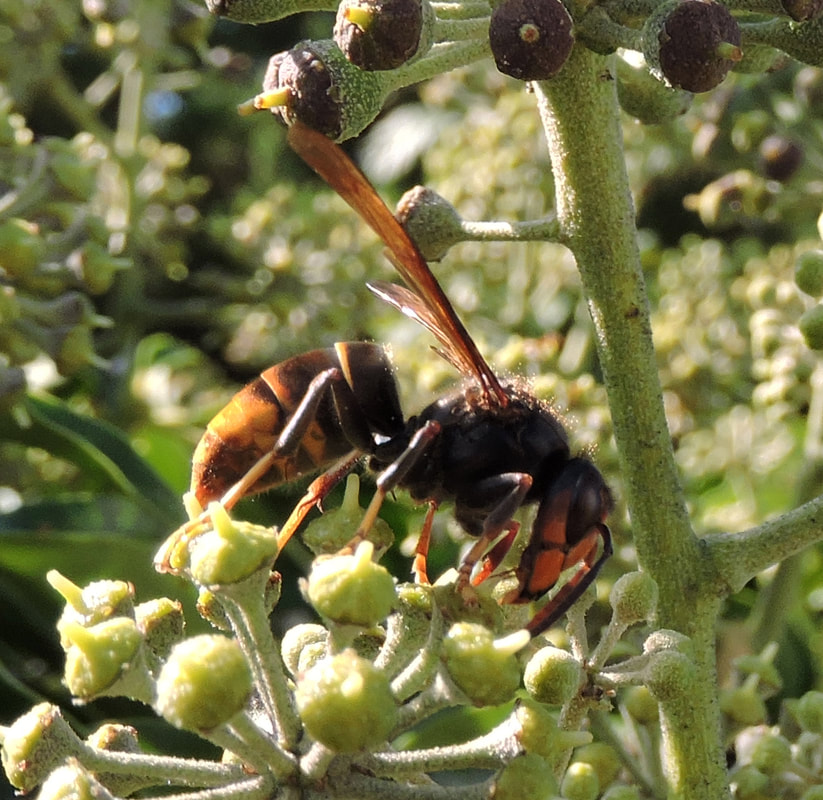
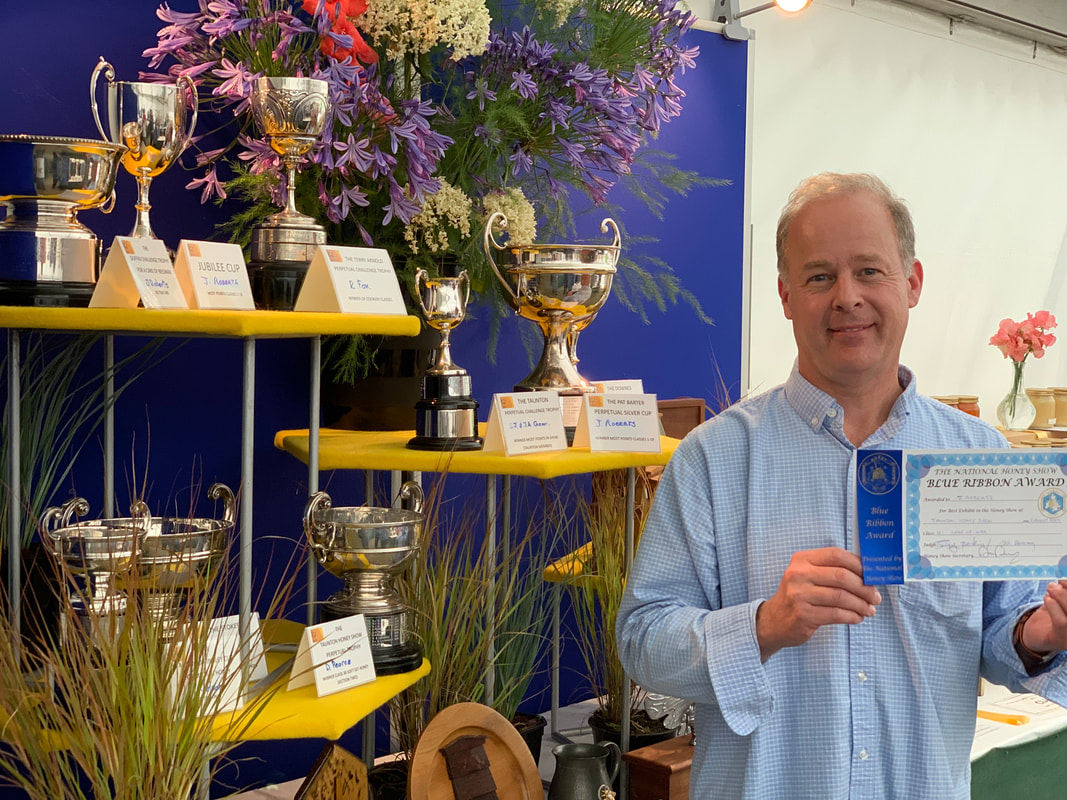
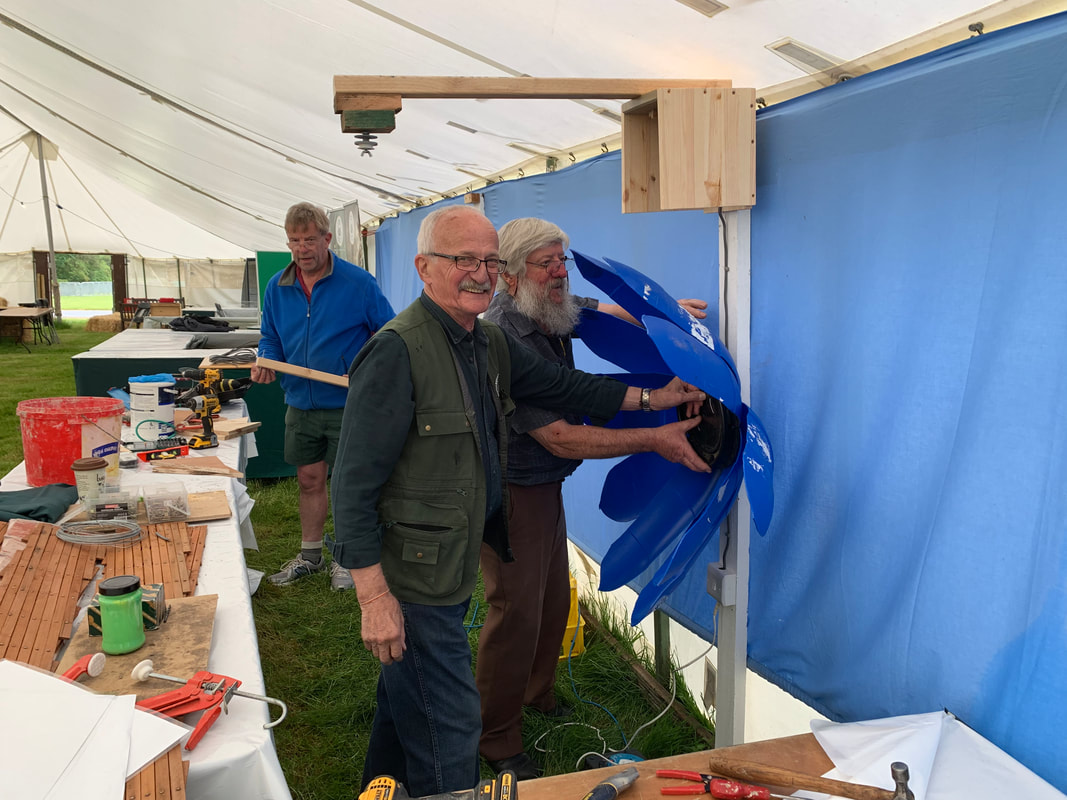
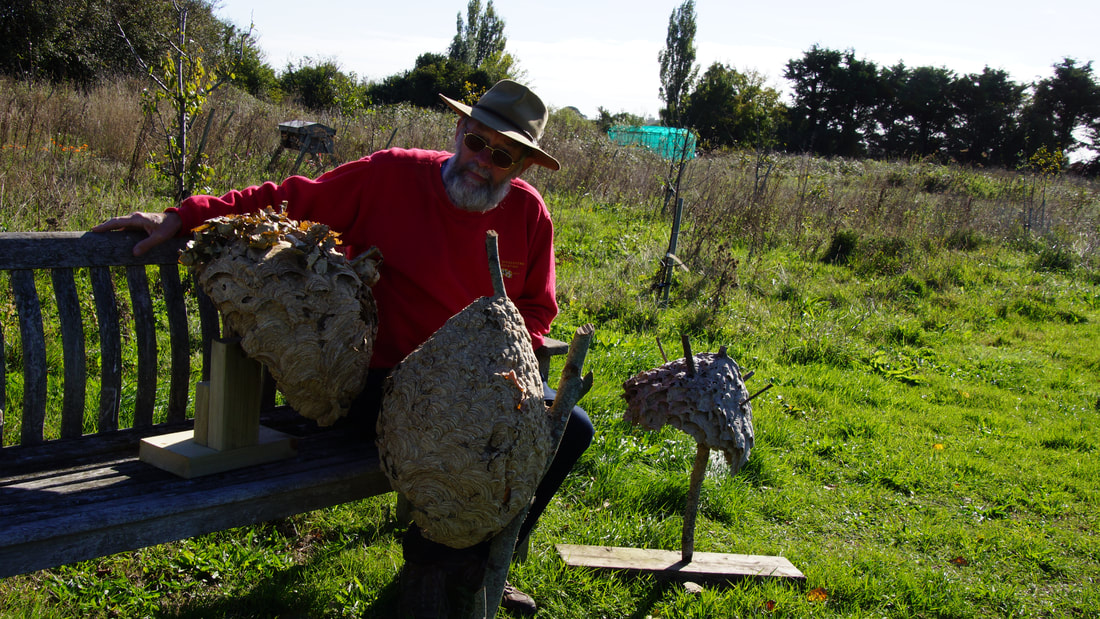
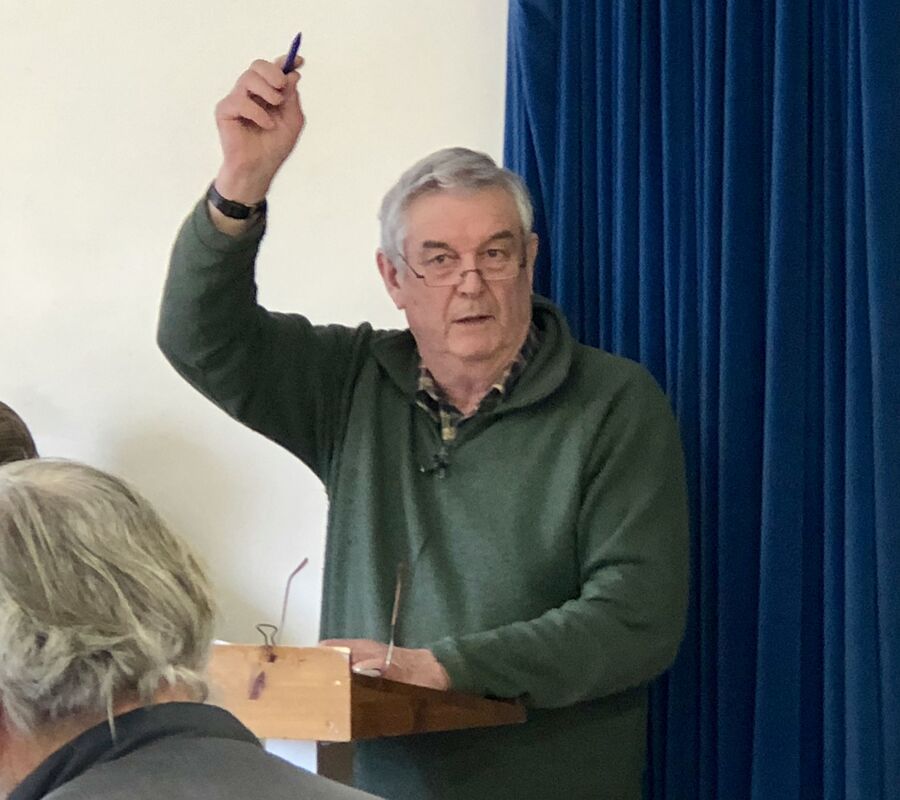
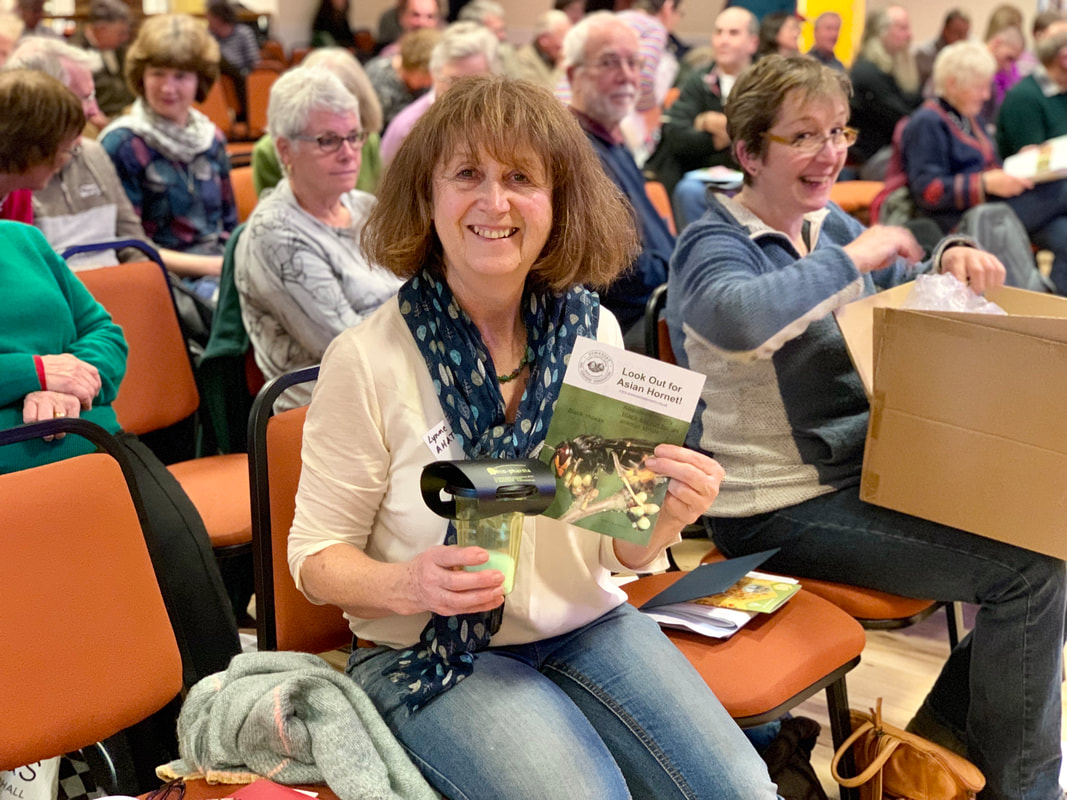
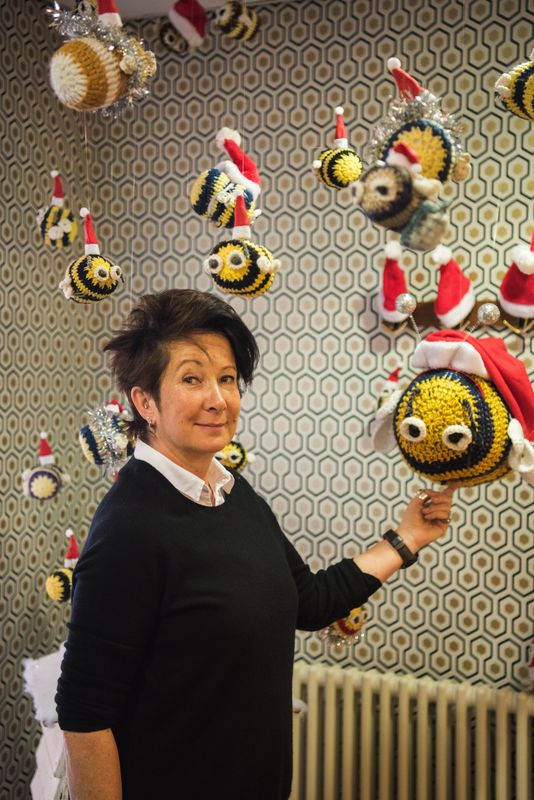
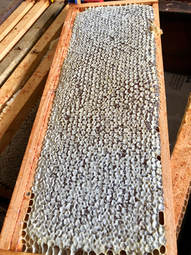
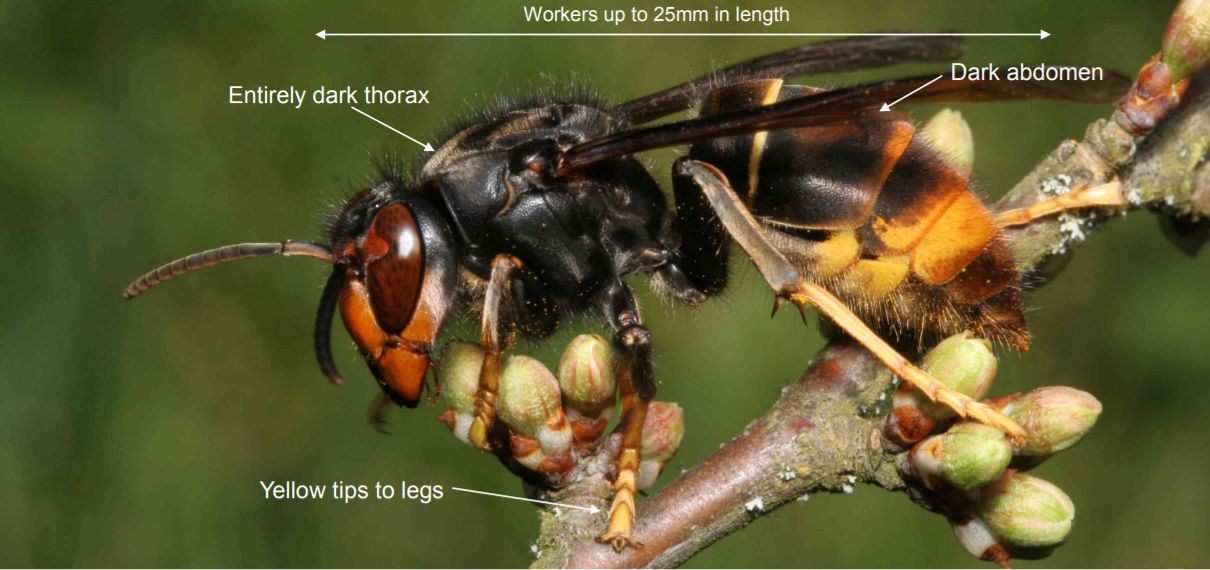
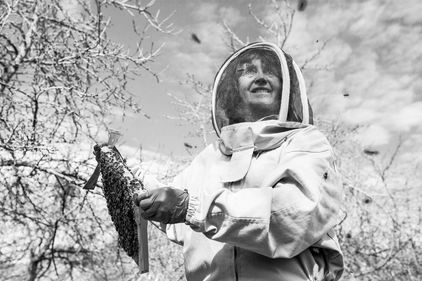
 RSS Feed
RSS Feed
